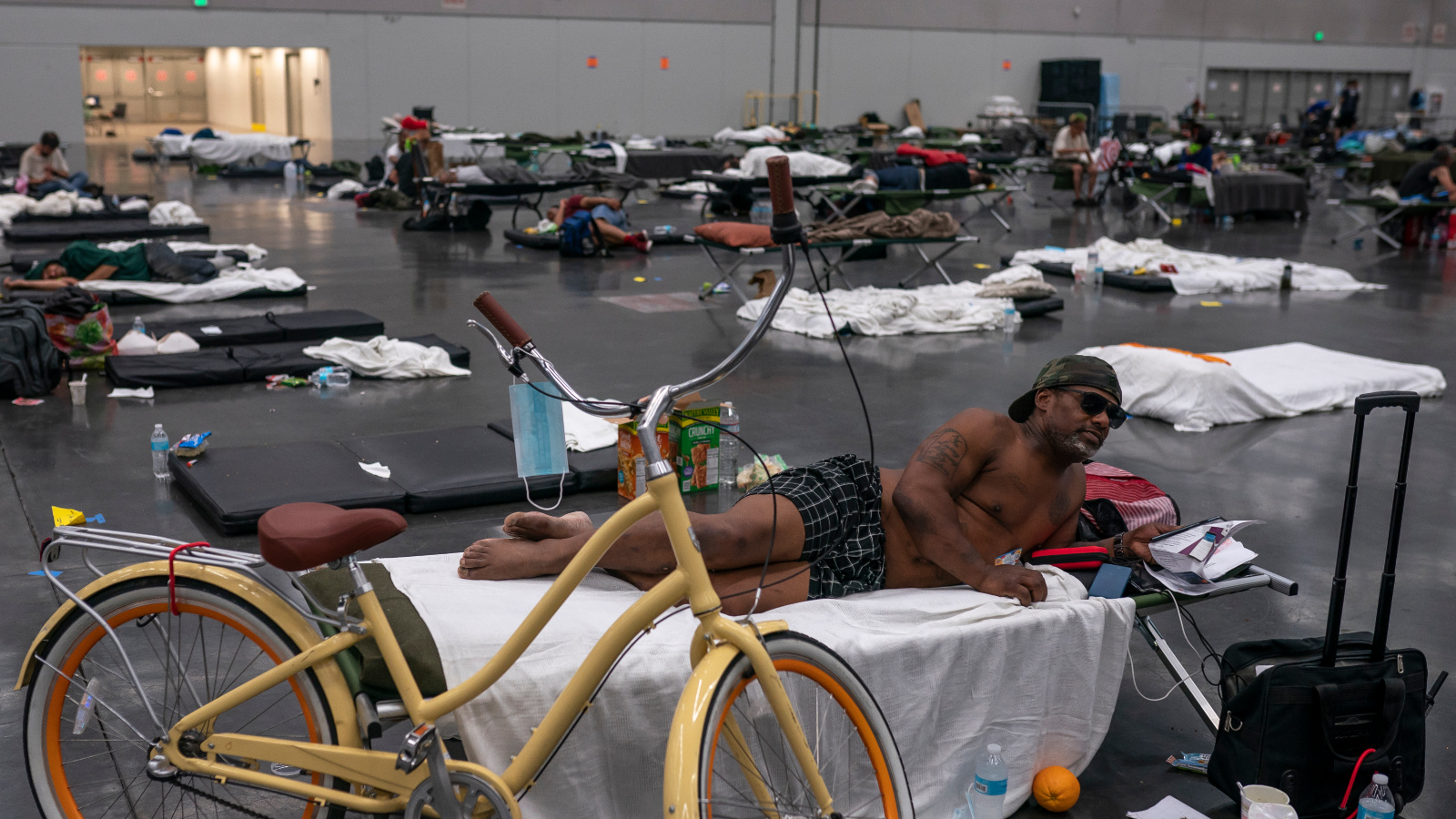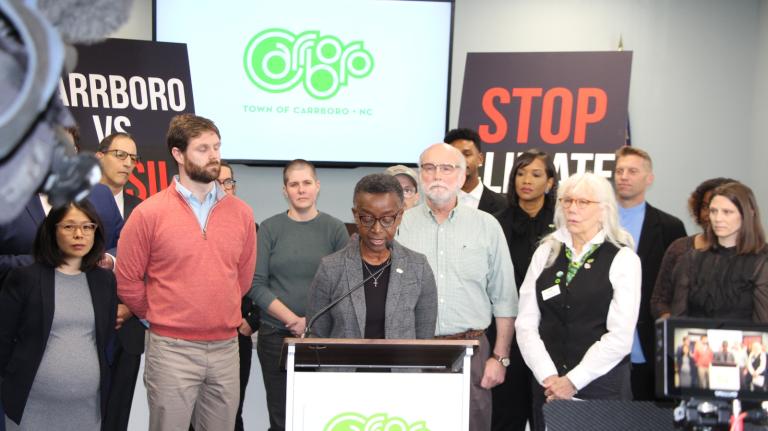It’s been nearly two years to the day since a freak heat wave obliterated temperature records across the Pacific Northwest. Portland reached a blistering 116 degrees on June 28, 2021, with the heat melting streetcar power cables, buckling pavement, and killing an estimated 69 people in Multnomah County. About 800 people died across Oregon, Washington, and British Columbia.
Now, that heat dome — which scientists deemed “virtually impossible” without global warming — is the subject of a new lawsuit. Multnomah County sued ExxonMobil, Shell, Chevron, and other fossil fuel companies on Thursday, seeking to put them on trial for the role their products played in fueling the heat wave.
The lawsuit alleges that these companies, along with the American Petroleum Institute, committed negligence and fraud — and created a public nuisance — by concealing what they knew about the dangers of burning fossil fuels. It demands they pay $50 million for past damages, along with $1.5 billion for future damages. On top of that, Multnomah is seeking $50 billion for a fund to upgrade its public health services and “weatherproof” its infrastructure to withstand extreme weather.
“This lawsuit is about accountability and fairness, and I believe the people of Multnomah County deserve both. These businesses knew their products were unsafe and harmful, and they lied about it,” said Jessica Vega Pederson, Multnomah County chair, in a statement. “They have profited massively from their lies and left the rest of us to suffer the consequences and pay for the damages. We say enough is enough.”
Multnomah’s lawsuit is the latest addition to a growing group of lawsuits that cities and states have filed against oil companies for deceiving the public about the risks of oil, gas, and coal. They were set in motion by revelations that ExxonMobil had known that fossil fuels would heat up the planet, with catastrophic consequences, since 1977, but publicly cast doubt on the science and worked to block legislation that would limit carbon emissions. For about half a decade, these cases have been held up in legal limbo, with companies deploying maneuvers to move them from state courts they were filed in to more industry-friendly federal courts. In April, the Supreme Court rejected oil companies’ petitions to relocate the cases to a federal venue, clearing the way for these cases to progress — potentially to jury trials.
In response to the Multnomah lawsuit, an Exxon spokesperson said, “Suits like these continue to waste time, resources and do nothing to address climate change.”
Multnomah’s suit is one of the first to seek damages related to a specific weather event. A statement from the county calls the heat dome “one of the most deadly and destructive human-made weather disasters in American history.” Last year, a group of cities in Puerto Rico filed a lawsuit against fossil fuel companies for the damages they suffered by hurricanes Maria and Irma in 2017, using the racketeering law that brought down mobsters, RICO, and seeking billions of dollars.
“While other communities are seeking to hold Big Oil accountable for the costs of hurricanes, rising seas, and wildfires, Multnomah County is the first to demand that oil companies stand trial for fueling the devastating 2021 heat dome,” said Richard Wiles, the president of the Center for Climate Integrity, in a statement. “Communities should not be forced to pay the price for these catastrophic climate damages while the companies that caused the crisis perpetuate their lies and rake in record profits.”


